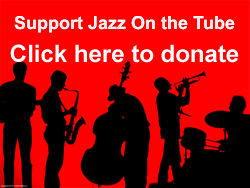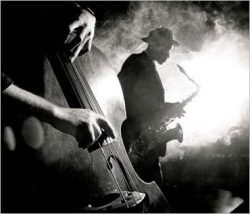Irakere Live at the Capitol Theater – 1979
“Irakere” is a Yoruban word that means virgin forest, a wild place unspoiled by civilization.
Tracking this band, its history, evolution and personnel changes would take a web site all by itself.
A short version of their story:
Jazz was not smiled upon by the government in Cuba in the 60s and 70s. The powers that be felt it smacked of imperialism and capitalism.
However, in order to cater to visitors and their expectations, the government underwrote a group called Orquesta Cubana de Música Modern that played American music.
In 1973, members of the Orquesta broke away to form Irakere. The founders included pianist Chucho Valdés, saxophonist Paquito D’Rivera, trumpet player Jorge Varona, guitarist Carlos Emilio Morales, bassist Carlos del Puerto, drummer Bernardo García, and percussionist and singer Oscar Valdés II.
In 1977, the group performed at two “Iron Curtain” festivals, the Belgrade Jazz Festival and the Warsaw Jazz Jamboree where they had the chance to meet Betty Carter, Mel Lewis and Thad Jones.
Later that year Dizzy Gillespie, Stan Getz, Earl Hines and other American musicians visited Cuba on a “jazz cruise,” the first time jazz musicians visited Cuba since the break in diplomatic and trade relations in 1961. Gillespie and Getz jammed with the members of the band.
In 1980 with Gillespie’s help, the group won spots on at the Newport Jazz Festival in New York City and the Montreux Jazz Festival in Switzerland and their international career was launched.
The recordings of those shows were packaged by both CBS Records (JC-35655) and EGREM (Areíto LD-3769) and won the Grammy in the 22nd Annual Grammy Awards for Best Latin recording.
The concert above was recorded at the Capital Theater in Jersey City, New Jersey on March 23, 1979 in the middle of their commercial break out.
(Make sure you watch through to the end when the group takes the music right into the audience.)
Personnel:
Carlos del Puerto, bass
Carlos Morales, electric guitar
Enrique Pla, drums
Jorge Alfonso El Niño, conga drums
Oscar Valdés, vocal and Cuban percussion
Armando Cuervo, vocal and Cuban percussion
Jorge Varona, trumpet, flugelhorn and vocal
Arturo Sandoval, trumpet, flugelhorn, valve trombone, vocal, arranger
Paquito D’Rivera, flute, alto sax, soprano sax, baritone sax, arranger
Carlo Averoff, soprano sax, tenor sax, flue, piccolo
Chucho Valdés, arranger, composer, keyboards, band leader
We have two more videos from this period.
One from Venezuelan television which we believe was recorded in 1979.
We also have one from 1977 when many of the cats were still in their twenties.
From Venezuelan television – c. 1979
Personnel:
Arturo Sandoval, trumpet
Jorge Varona, trumpet and vocals
Chucho Valdés, keyboards
Carlos Averhoff, saxophone
Carlos del Puerto, bass
Enrique Pla, timbales
Jorge Alfonso El Niño, conga drums, vocals
Armando Cuervo, percussion and vocals
Oscar Valdés, percussionist and vocals
Paquito D’Rivera, not on this recording
Filmed in 1977
– Ken McCarthy
Jazz on the Tube
P.S. Our unique programming is made possible by help from people like you. Learn how you can contribute to our efforts here: Support Jazz on the Tube
Thanks.



